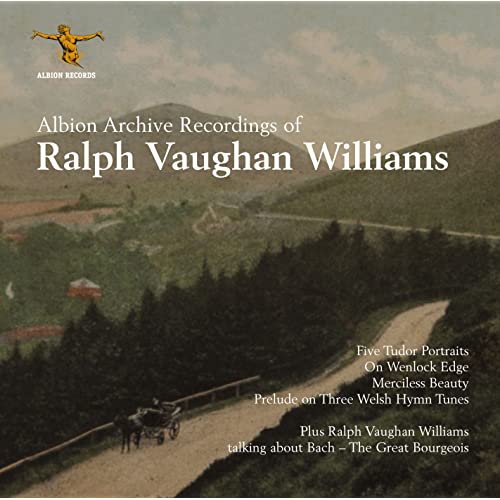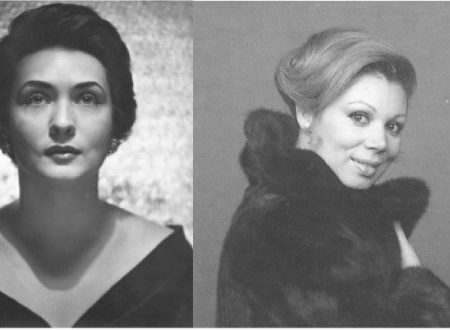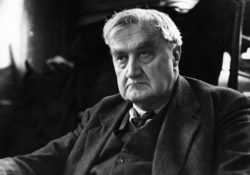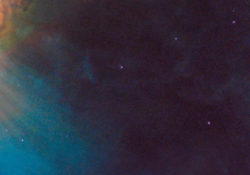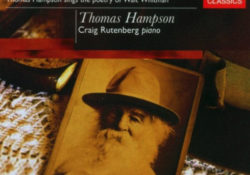An Exploration...
…with Distinguished Musicians and Analytical Experts
Produced with the Invaluable Collaboration of the Ralph Vaughan Williams Society
Ralph Vaughan Williams was born on the 12th of October 1872 into a well-to-do upper-middle class family in Victorian England. He died on August 26th 1958, leaving a legacy of vast diversity and striking dualities…in symphonies, chamber music, opera, choral music, arts song, and film scores.
In his young years, he had begun collecting ancient folk tunes that were then still being sung by some of the local people in the county of Norfolk in Eastern England, and his discovery of their modal melodies and their direct associations with the countryside was his first main inspiration to start composing. They were to remain a major source for his musical language throughout his long career, but that was only one part of the complex story of his highly varied creative greatness.
Enlightening us about this in our Hampsong Foundation exploration of his vocal music as our commemoration of him at the 150th anniversary of his birth are distinguished musicians and expert analysts who have recorded interviews exclusively for this feature, and additionally there are several short extracts of interviews taken from the WFMT Radio Network feature “Ralph Vaughan Williams – Mystical Chameleon”, which Jon Tolansky produced and hosted in 2008, the 50th anniversary year of the composer’s death.
The feature has been produced with the invaluable collaboration of the Ralph Vaughan Williams Society (https://rvwsociety.com), which has also graciously provided the bulk of the recorded music illustrations taken from the catalogue of their award-winning label Albion Records (https://albionrecords.org/), and we thank them most greatly for this. We are also very grateful to Warner Classics (www.warnerclassics.com) for their continuing on-going partnership enabling us to include recorded extracts from their catalogue, and additionally we extend our gratitude and appreciation to Chandos Records (www.chandos.net) and Heritage Records (www.heritage-records.com) for agreeing the use of specific recordings from their catalogues for this feature.
All the details are identified in the information references to the recordings, further on below.
RALPH VAUGHAN WILLIAMS: THE VOCAL MUSIC
Thomas Hampson speaks about Vaughan Williams, as a musician, as a human, and as a composer of vocal music:
The Garden of Proserpine, an early work composed in 1899, is taken from A.C. Swinburne’s collection Poems and Ballads (1866), works notorious for their eroticism, republicanism and antitheism. For Vaughan Williams’ generation the book remained a watchword for modernity and rebellious free-thinking.
From the album: ALBION ALBCD 012
The Symphony No. 1 (A Sea Symphony) was written between 1903 and 1909 and was inspired by texts from Walt Whitman’s poetry collection Leaves of Grass.
While he was composing A Sea Symphony, Vaughan Williams also wrote Toward the Unknown Region, again setting Walt Whitman. He probably completed it in 1906.
From the album (Symphony No. 1, A Sea Symphony): WARNER CLASSICS 9029540982
From the album (Toward the Unknown Region): WARNER CLASSICS 5747822
In 1908, Vaughan Williams went to study with Maurice Ravel for a year. He was profoundly influenced by his teacher, although mainly in matters of sonority, and not at all in any stylistic sense. Ravel said that he was his only pupil whose music did not sound like a copy of his teacher’s.
That same year, Vaughan Williams wrote three Nocturnes for baritone and orchestra, all to texts by Walt Whitman. The setting of “Whispers of Heavenly Death” is the only one in which the composer’s original orchestration survives.
From the album: ALBION ALBCD 028
The following year, 1909, Vaughan Williams completed his song cycle On Wenlock Edge, to poems by A. E. Housman (Alfred Edward Housman).
From the album: WARNER CLASSICS 9689392
In 1911, came incidental music for three plays by Euripides – The Bacchae, Electra and Iphigenia in Tauris.
From the album: ALBION ALBCD 033
In 1921, Vaughan Williams composed his Mass in G Minor for unaccompanied double choir and four soloists. The text is from the Catholic Ordinary Mass.
From the album: WARNER CLASSICS 0954332
The same year (1921) he completed his Symphony No. 3, which he called his Pastoral Symphony. He never publicly explained why he gave it that title, but a lot later, in 1938, he did confide about it to his future wife, Ursula Woods, after it had received some negative comments about its “pastoral” elements. ‘It’s really war-time music’, he wrote to her, ‘a great deal of it incubated when I used to go up night after night with the ambulance wagon at Ecoivres and we went up a steep hill and there was a wonderful Corot-like landscape in the sunset – it’s not really lambkins frisking as most people take for granted.’ The ambulance wagon was for taking the wounded and dead on the battlefields in France in World War One. And thus the Vaughan Williams biographer Michael Kennedy has written: ‘the human voice intrudes upon the landscape, but it is an ethereal, transcendental voice. Is it a girl singing over the killing fields…or something more mystical?’
From the album: CHANDOS CHAN 10001
It was probably in 1924 or 1925 that Vaughan Williams set “A Clear Midnight” and “Joy, Shipmate, Joy,” as two of a set of three Walt Whitman settings.
From the album: EMI 7243 5 55028 2 7
1926 was the year of Britain’s General Strike, and it was right in the middle of that momentous event that Vaughan Williams’ oratorio Sancta Civitas was premiered, the year after the composer had completed the score, which he had begun in 1923. The texts are taken from the Bible’s Book of Revelation.
From the album: WARNER CLASSICS 0954332
In 1932, Vaughan Williams completed his one act opera Riders to the Sea. It is based on John Millington Synge’s one act play in which a woman who has already lost her husband, father-in-law and five of her six sons to the sea that surrounds the little Aran island of her home off the West coast of Ireland, now loses her sixth and last son – and she and her two daughters somehow come to terms with the forces of nature that are beyond their control.
From the album: Chandos CHAN 10870
Dona nobis pacem was composed in 1936, with an unusual and original choice of combining texts: they are taken from the Catholic Mass, three poems by Walt Whitman, a political speech by the radical British statesman John Bright, and the Bible. The work has been seen as a plea for peace at a time when that was beginning to look less and less of a likelihood.
From the album: WARNER CLASSICS 5747822
Two years later, in 1938, in great contrast Vaughan Williams composed his Serenade to Music for 16 vocal soloists and orchestra. Setting an extract from Shakespeare’s The Merchant of Venice, it was written as a tribute to the conductor Sir Henry Wood on the 50th anniversary of his first concert.
From the album: WARNER CLASSICS 7640222
Pilgrim’s Progress, based on John Bunyan’s allegory of the same name, premiered as an opera in 1951, and was an extended revision of the music Vaughan Williams had written in 1942 a BBC radio dramatization of Bunyan’s work.
From the album: Chandos CHAN 9625
It was in 1953 and 1954 that Vaughan Williams wrote his last major choral composition with orchestra: Hodie, a Christmas cantata setting a mixture of texts from the Bible and poets.
From the album: WARNER CLASSICS 9689342
The folk song settings included in this project were made at various times in various locations between 1908 and 1946.
From the albums: ALBION ALBCD 042, 043, 044, 045 034
Below:
Excerpt of Vaughan Williams conducting Bach’s St. Matthew Passion in 1958, as well as interviews with Renée Stewart and Lewis Foreman.
Additionally, Albion Records have most generously provided an extract from the BBC talk that Vaughan Williams gave that was entitled “Bach – The Great Bourgeois” – it was aired on the 28th of July 1950.
From the albums: PEARL GEMS 0079 & ALBION ALBCD 014
On the Ralph Vaughan Williams Society, Albion Records and the Ralph Vaughan Williams
Society Journal:
Learn More Here:
The Ralph Vaughan Williams Society
Widening the understanding & appreciation of the music of Ralph Vaughan Williams
Home of Albion Records and the Ralph Vaughan Williams Society Journal
Visit siteMUSICAL EXTRACTS INDEX
Walt Whitman song settings:
From the album: EMI 7243 5 55028 2 7
From DONA NOBIS PACEM:
From the album: WARNER CLASSICS 5747822
Folk Song Settings:
From the albums: ALBION ALBCD 042, 043, 044, 034
From Hodie:
From the album: WARNER CLASSICS 9689342
From MASS IN G MINOR:
From the album: WARNER CLASSICS 0954332
From MUSIC FOR GREEK PLAYS:
From the album: ALBION ALBCD 033
From NOCTURNES:
From the album: ALBION ALBCD 028
From ON WENLOCK EDGE:
From the album: WARNER CLASSICS 9689392
From RIDERS TO THE SEA:
From the album: CHANDOS CHAN 10870
From SANCTA CIVITAS:
From the album: WARNER CLASSICS 0954332
SERENADE TO MUSIC, Excerpt:
From the album: WARNER CLASSICS 7640222
From SYMPHONY NO. 1, “A Sea Symphony”:
From the album: WARNER CLASSICS 9029540982
From SYMPHONY NO. 3, “Pastoral”:
From the album: CHANDOS CHAN 10001
From THE GARDEN OF PROSERPINE:
From the album: ALBION ALBCD 012
From TOWARD THE UNKNOWN REGION:
From the album: WARNER CLASSICS 5747822
INTERVIEW INDEX
The speakers in this feature are:
A) Exclusively recorded for the Hampson Foundation:
- Sir Andrew Davis – Conductor: President of the Ralph Vaughan Williams Society
- John Francis – Treasurer and Vice-Chairman of the Ralph Vaughan Williams Society
- Thomas Hampson – Baritone: Founder/President of the Hampsong Foundation
- William Hedley – Conductor: Journal Editor of the Ralph Vaughan Williams Society
- Graham Muncy – Information Officer of the Ralph Vaughan Williams Society
B) Recorded for the radio program “Ralph Vaughan Williams – Mystical Chameleon”:
- Lewis Foreman – Author and Musicologist
- Richard Hickox – Late Conductor
- Renée Stewart – Late Secretary and Archivist of the Leith Hill Musical Festival
The exclusive newly recorded interviews have necessarily been made via Zoom during the Covid pandemic, therefore the sound quality varies from good to not very good. In some of the interviews, the producer’s voice is also heard.
The topics each speaker discusses are identified in the audio files’ titles. They are as follows:
SIR ANDREW DAVIS:
Interview 1 – Symphony No 1 (Sea), and Toward the Unknown Region
Interview 2 – Symphony No 3 (Pastoral)
LEWIS FOREMAN:
Interview 1 – Atheism and Sacred Texts, and Dona Nobis Pacem
Interview 2 – On Wenlock Edge
Also: Vaughan Williams conducting Bach’s St. Matthew Passion Extract, embedded in the extract
JOHN FRANCIS:
Interview 1 – Ralph Vaughan Williams Society and Albion Records
Interview 2 – “Earth and Sky” Albion Records Disc
Interview 3 – Music for Greek Plays
Interview 4 – Vaughan Williams and Folk Music
Interview 5 – Nocturnes, and also short reference to The Garden of Proserpine
Interview 6 – Vaughan Williams and World War One
Interview 7 – Riders to the Sea
THOMAS HAMPSON:
This is a continuously running introductory overview, with special emphasis on the influence of Walt Whitman on Vaughan Williams.
WILLIAM HEDLEY:
Interview 1 – The Ralph Vaughan Williams Society Journal
Interview 2 – Sacred Texts, and The Oxen (Hodie), and Dona Nobis Pacem
RICHARD HICKOX:
Pilgrim’s Progress Music Extract, embedded in the extract
Riders to the Sea Music Extract, embedded in the extract
GRAHAM MUNCY:
Interview 1 – Walt Whitman and other transcendental poets’ influence on Vaughan Williams
Interview 2 – Symphony No 1 (Sea)
Interview 3 – Symphony No 3 (Pastoral)
Interview 4 – Riders to the Sea
Interview 5 – Atheism and Religious Settings, and Mass in G Minor
Interview 6 – Serenade to Music
RENÉE STEWART:
Vaughan Williams conducting Bach’s St. Matthew Passion Extract, embedded in the extract
To the Soul
Thomas Hampson, baritone
Craig Rutenberg, piano
EMI: 7243 5 55028 2 7
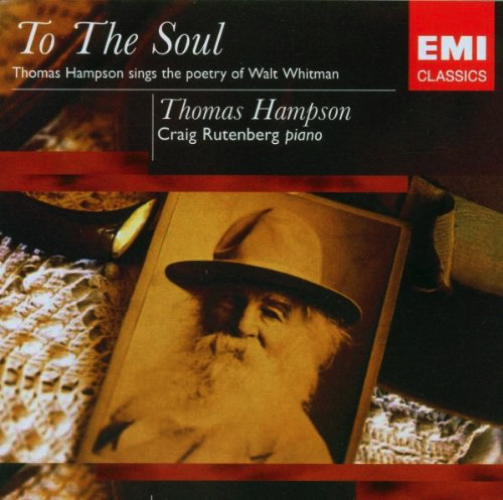
Vaughan Williams: Dona nobis pacem, etc.
Sheila Armstrong, John Carol Case, London Philharmonic Choir, London Philharmonic Orchestra, Sir Adrian Boult
Sheila Armstrong (Soprano)
John Carol Case (Baritone)
Sir Adrian Boult (Conductor)
London Philharmonic Orchestra
London Philharmonic Choir
1989, London, Kingsway Hall
Warner Classics: 5747822
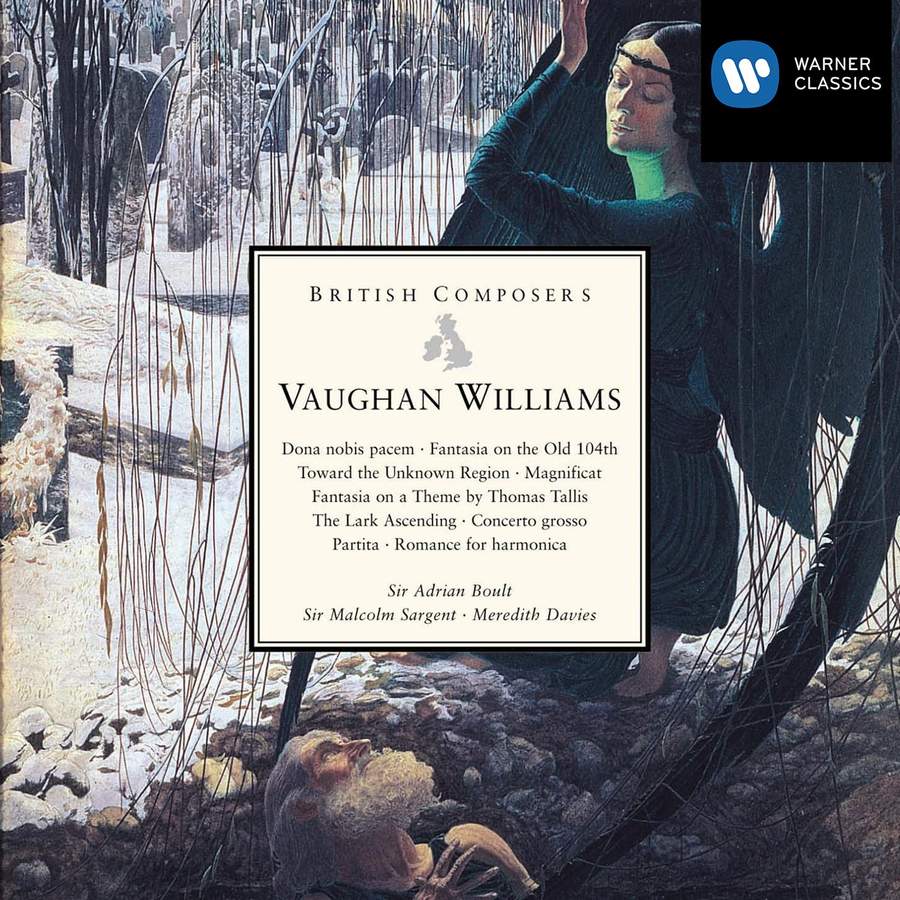
Ralph Vaughan Williams: Folk Songs, Vol. 1
Mary Bevan (Soprano)
Nicky Spence (Tenor)
Roderick Williams (Baritone)
William Vann (Piano)
Jack Liebeck (Violin)
Included in this album:
Albion: 042
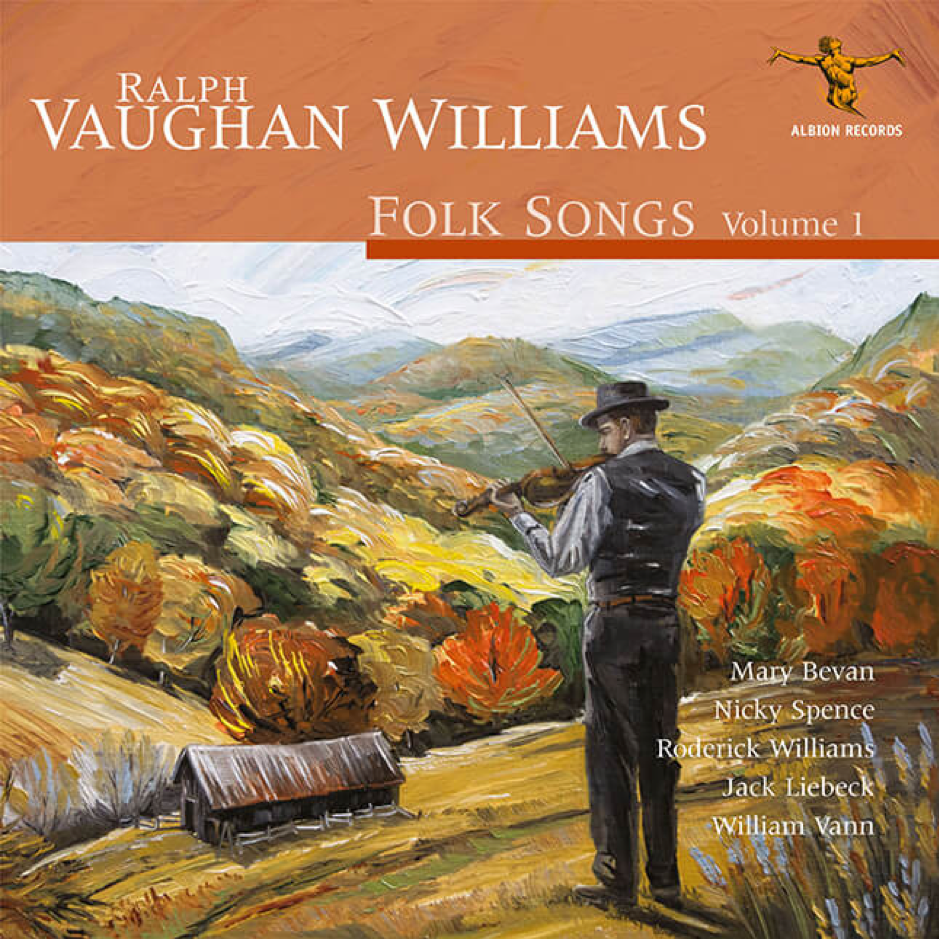
Ralph Vaughan Williams: Folk Songs, Vol. 2
Mary Bevan (Soprano)
Nicky Spence (Tenor)
Roderick Williams (Baritone)
William Vann (Piano)
Thomas Gould (Violin)
Recorded: 2016-2020
Included in this album: "Bushes and Briars," "Down by the Riverside," "Farmyard Song"
Albion: 043
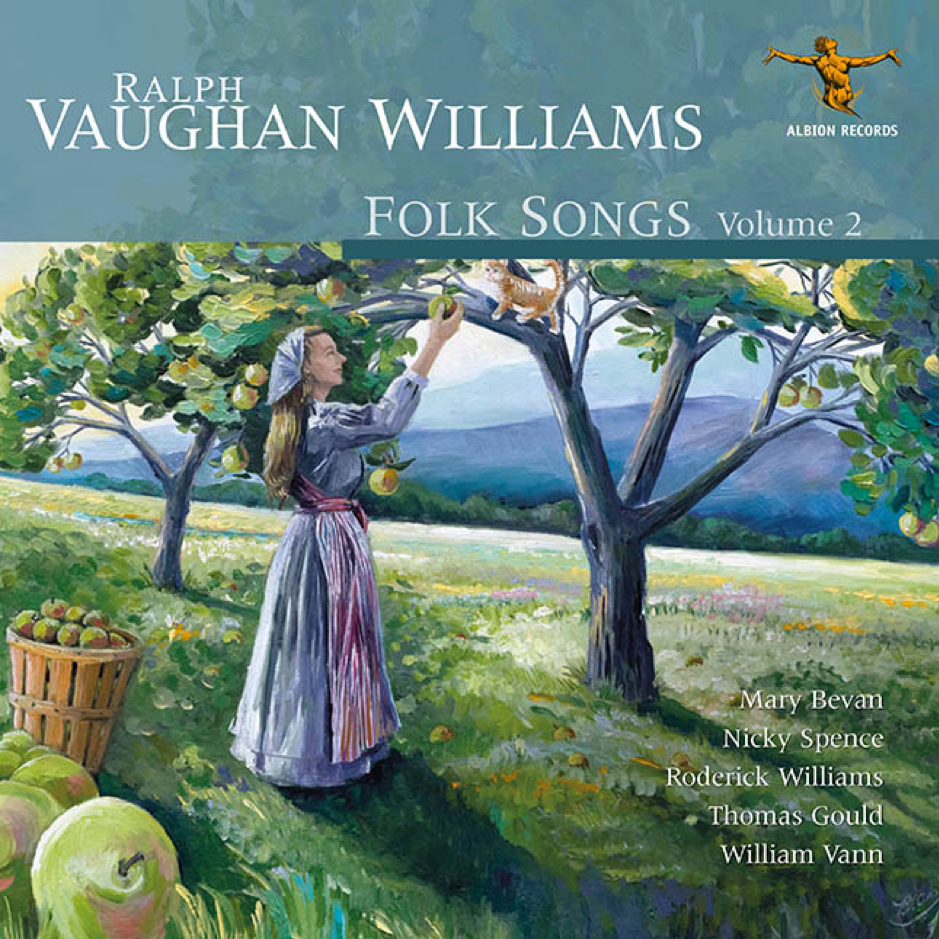
Ralph Vaughan Williams: Folk Songs, Vol. 3
Mary Bevan (Soprano)
Nicky Spence (Tenor)
Roderick Williams (Baritone)
William Vann (Piano)
Recorded: 2018 - 2020
Included in this album: "As I Walked Out," "The Lost Lady Found"
Albion: 044
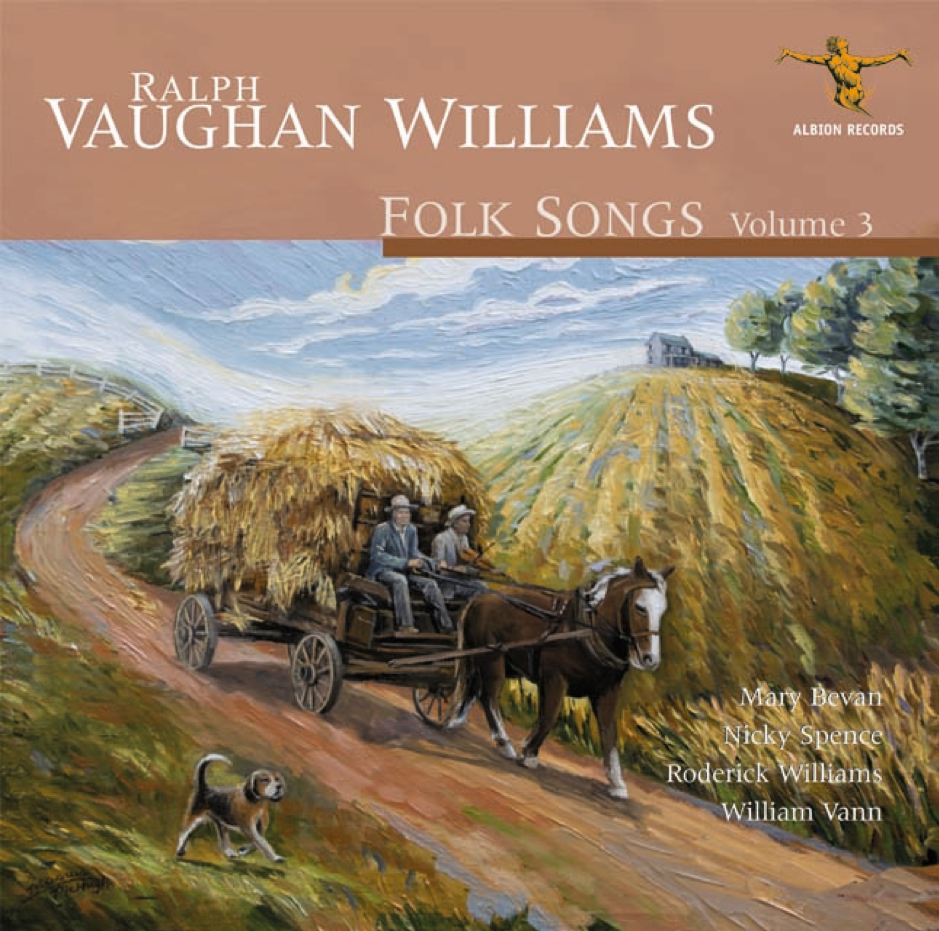
Ralph Vaughan Williams: Folk Songs, Vol. 4
Mary Bevan (Soprano)
Nicky Spence (Tenor)
Roderick Williams (Baritone)
William Vann (Piano)
Recorded: 2018-2020
Included in this album: "Lord Akeman"
Albion: 045
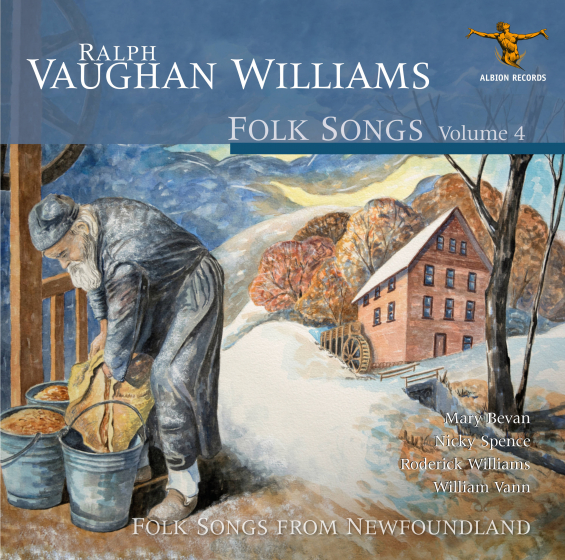
Earth and Sky: Vaughan Williams Choral Premières
Thomas Stoddart (Baritone)
William Vann (Piano)
Chapel Choir of the Royal Hospital Chelsea
Recorded: February 2018, London, St. Jude-on-the-Hill
Albion: 034
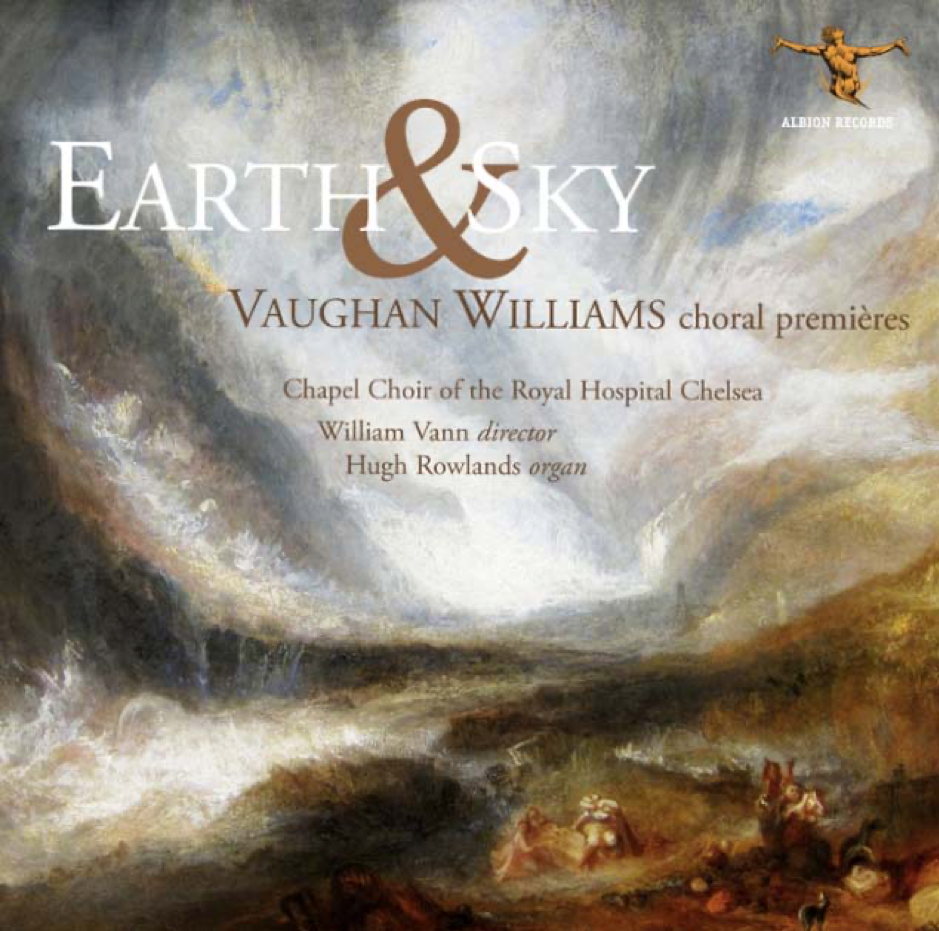
Vaughan Williams: A Sea Symphony, Hodie
Stephen Roberts (Bass-baritone)
Richard Hickox
London Symphony Orchestra
London Symphony Chorus
Choristers of St Paul's Cathedral
Recorded: 1990
Warner Classics: 9689342
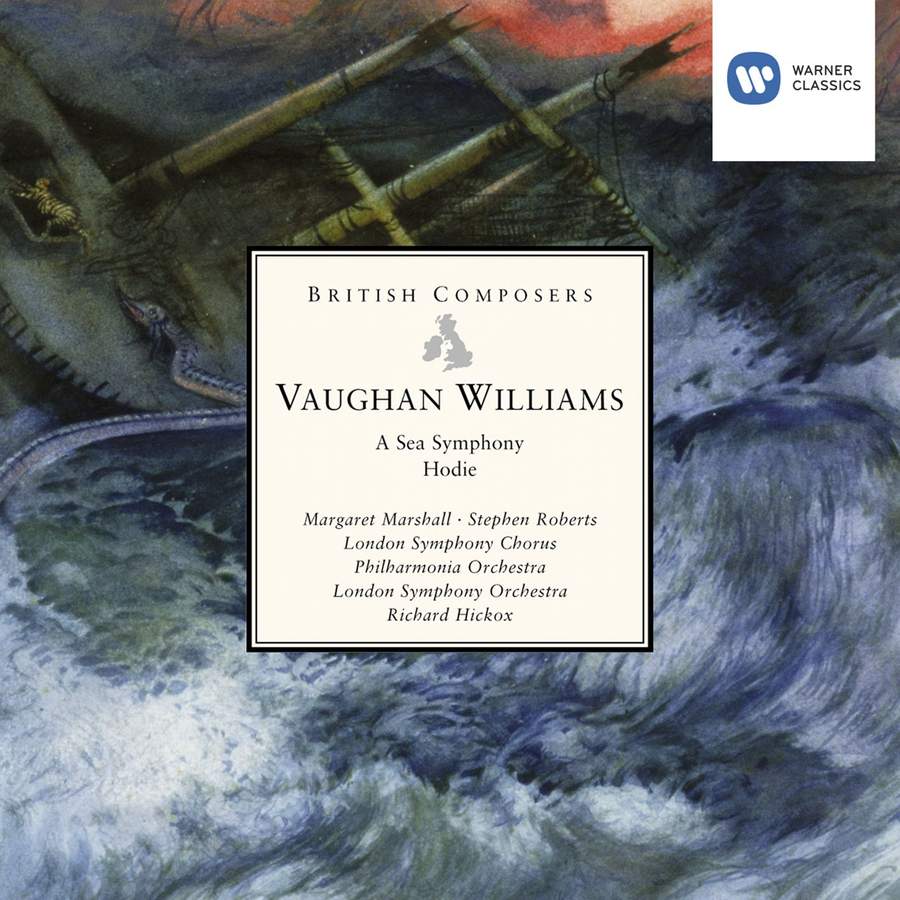
British Composers - Vaughan Williams, Finzi & Holst
Mass in G Minor:
Sir David Willcocks
Choir of King's College, Cambridge
Recorded: 2011
Sancta Civitas:
John Shirley-Quirk (Bass-baritone)
Sir David Willcocks
The Bach Choir
London Symphony Orchestra
Recorded: 2011
Warner Classics: 0954332
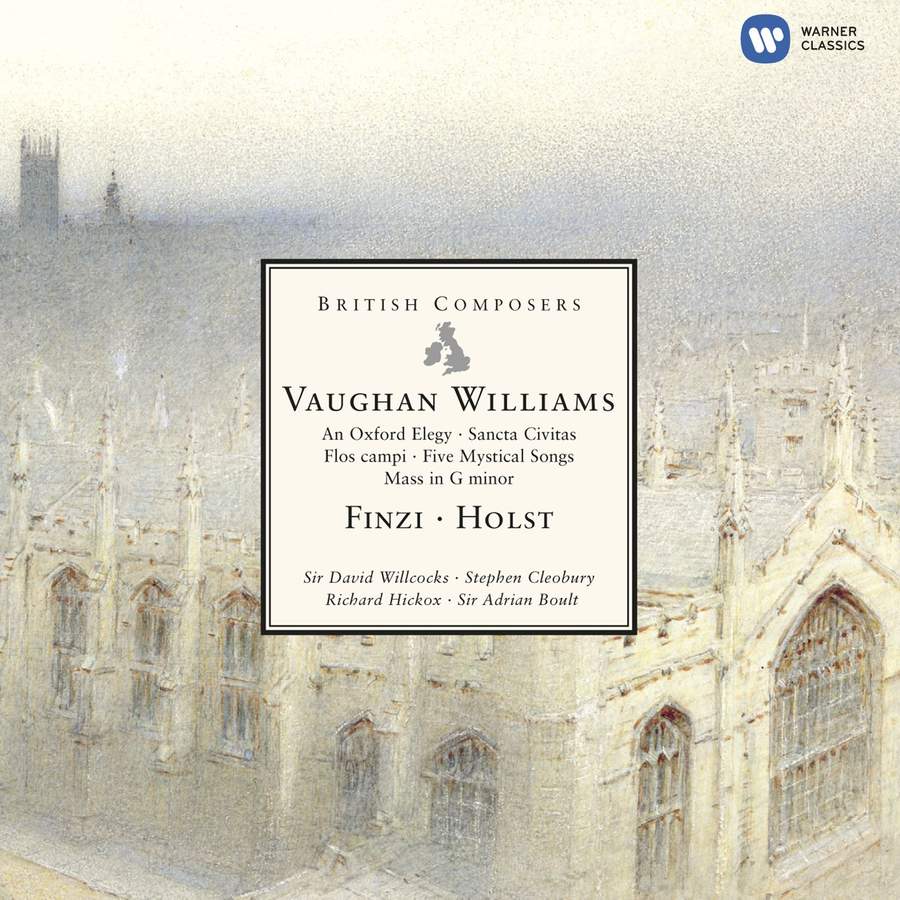
Vaughan Williams: Beyond My Dream – Music for Greek Plays
Heather Lowe (Mezzo-soprano)
Alan Tongue
Britten Sinfonia
Joyful Company of Singers
Recorded: April 2017, Hampstead, St. Jude-on-the-Hill, Hampstead
Albion: 033
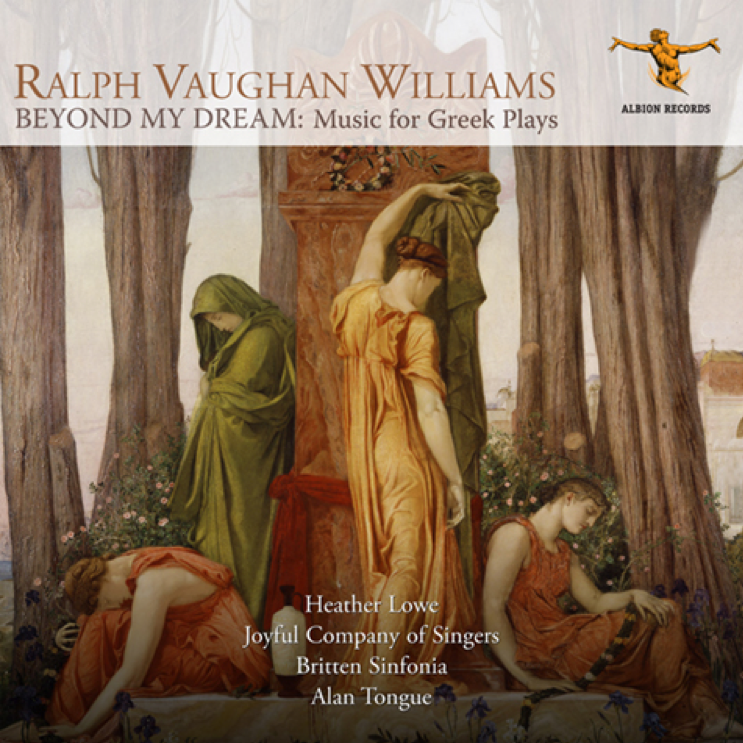
Vaughan Williams: Discoveries
Roderick Williams, baritone
Martyn Brabbins
BBC Symphony Orchestra
Recorded: October 2015, London, Maida Vale Studios, London
Albion: 028
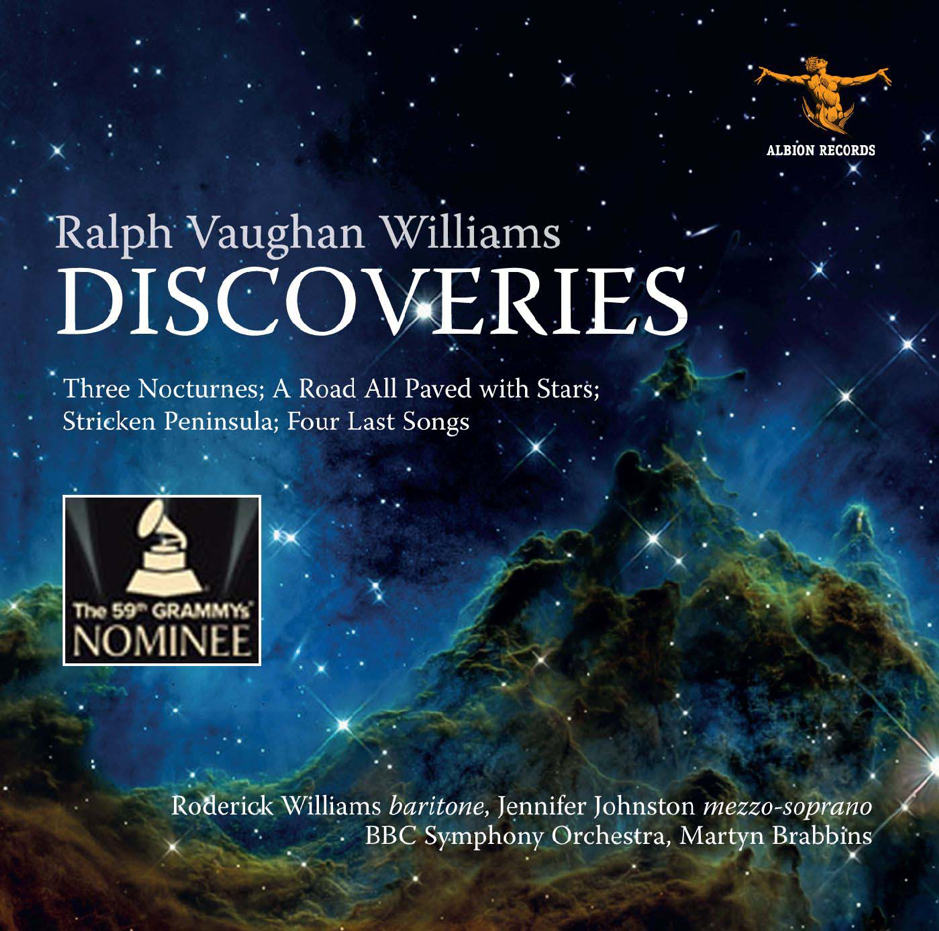
20th Century Classics: Vaughan Williams
Ian Partridge (Tenor)
The Music Group of London
Recorded: 1987
Warner Classics: 9689392
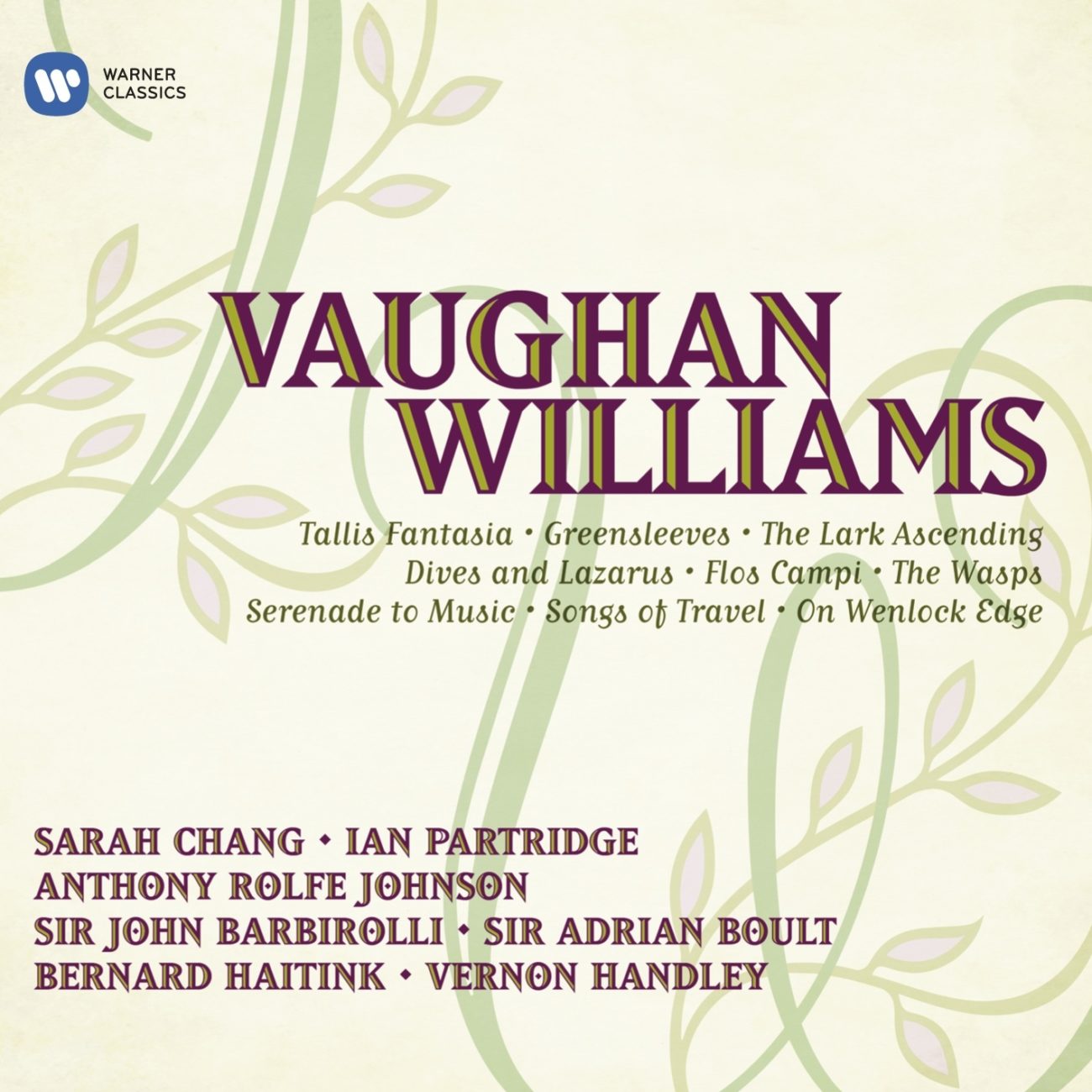
Vaughan Williams: Riders to the Sea, Op. 1, Household Music & Flos campi
Linda Finnie (Maurya)
Ingrid Attrot (Nora)
Richard Hickox
Sinfonia Chorus
Northern Sinfonia
Recorded: March 1995, Newcastle upon Tyne, St Nicholas Hospital
Chandos: 10870
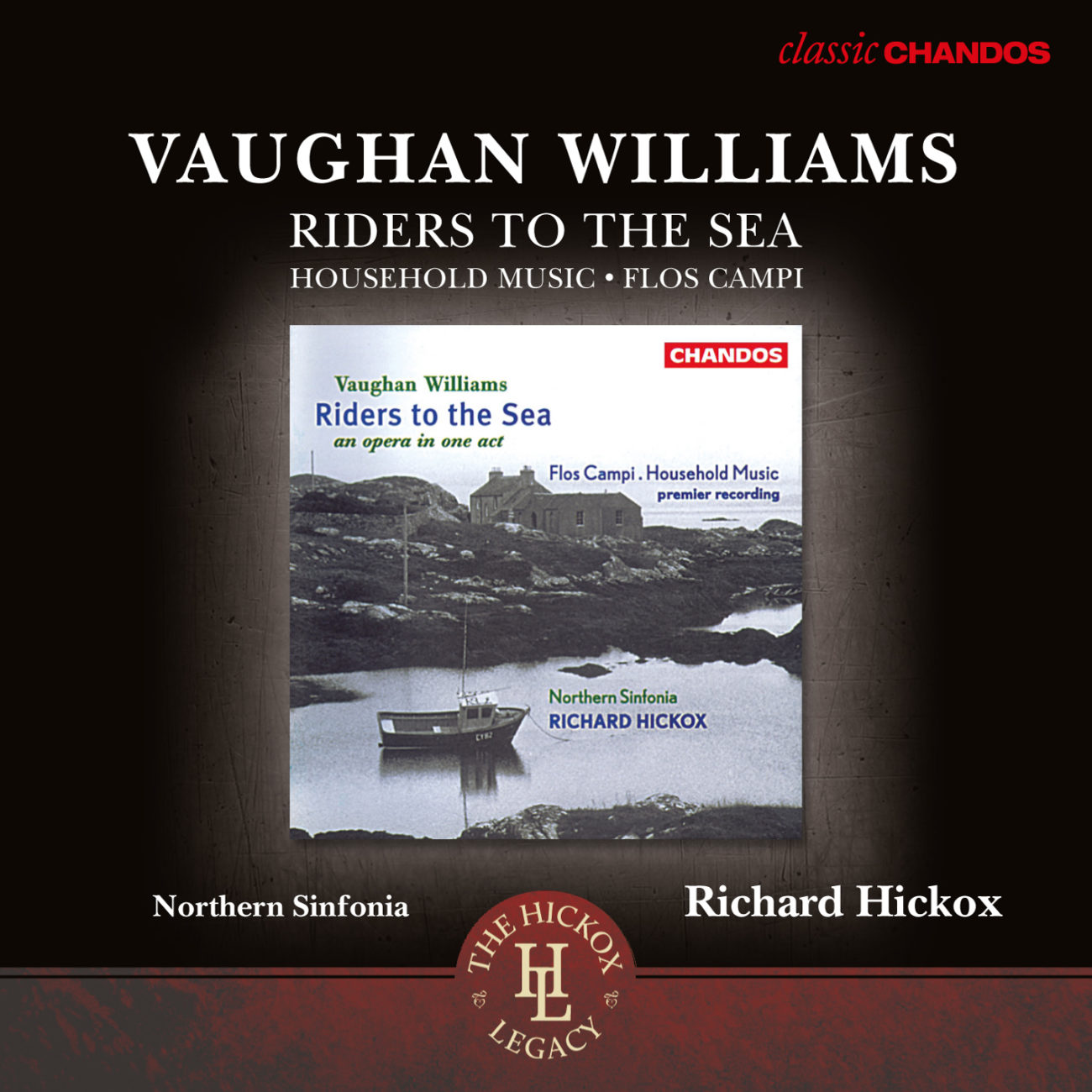
Pilgrim's Progress
Gerald Finley (Pilgrim)
Jeremy White (Evangelist)
Royal Opera House Orchestra
Richard Hickox
Chandos: 9625
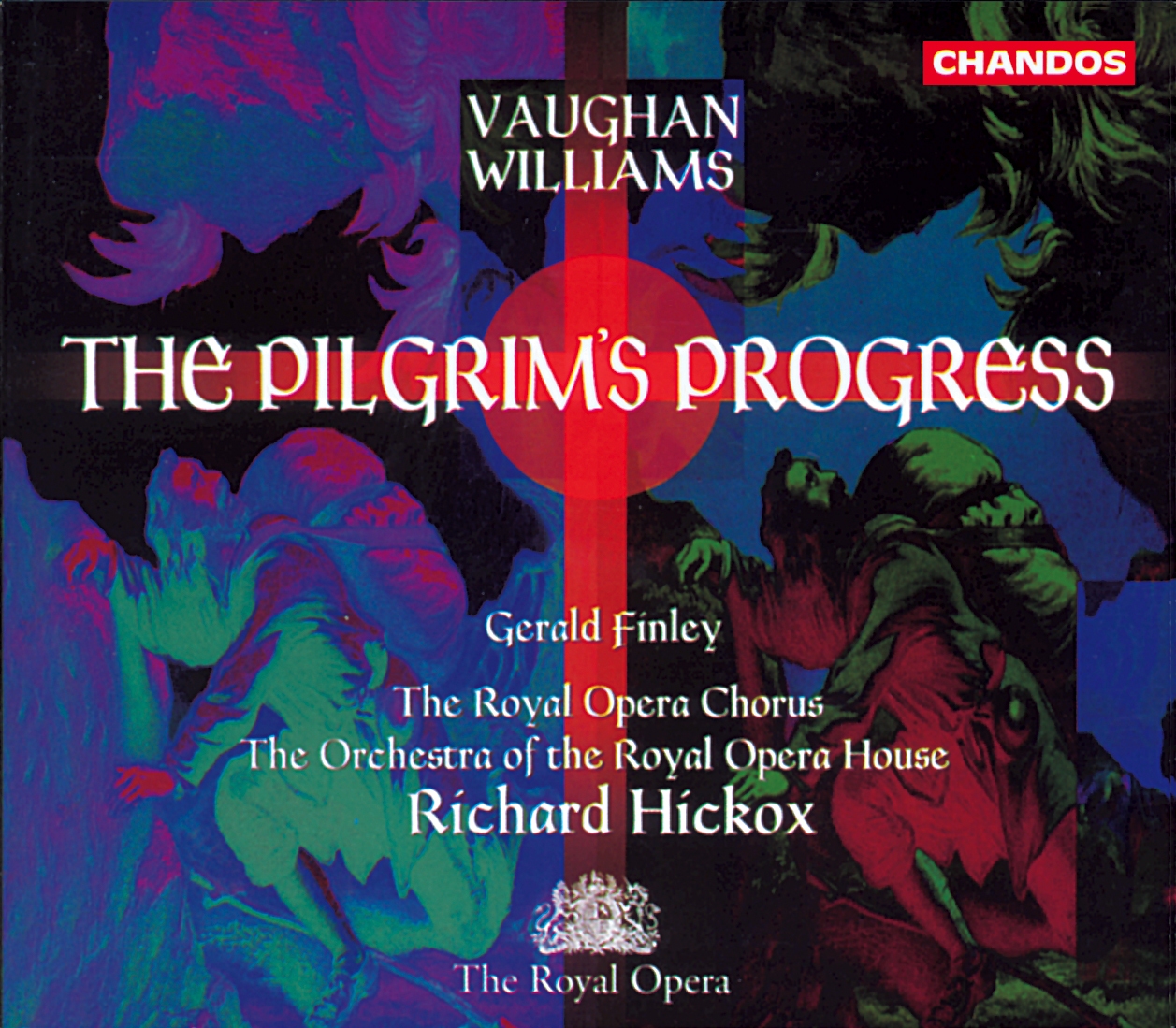
Vaughan Williams: Serenade to Music - The Lark Ascending
Norma Burrowes (Soprano); Sheila Armstrong (Soprano); Susan Longfield (Soprano); Marie Hayward (Soprano)
Meriel Dickinson (Mezzo-soprano); Alfreda Hodgson (Alto); Shirley Minty (Alto); Gloria Jennings (Alto)
Bernard Dickerson (Tenor); Kenneth Bowen (Tenor); Ian Partridge (Tenor); Wynne Evans (Tenor)
John Carol Case (Bass); John Noble (Bass); Richard Angas (Bass); Christopher Keyte (Bass)
Sir Adrian Boult
London Philharmonic Orchestra
Recorded: 1970
Warner Classics: 7640222
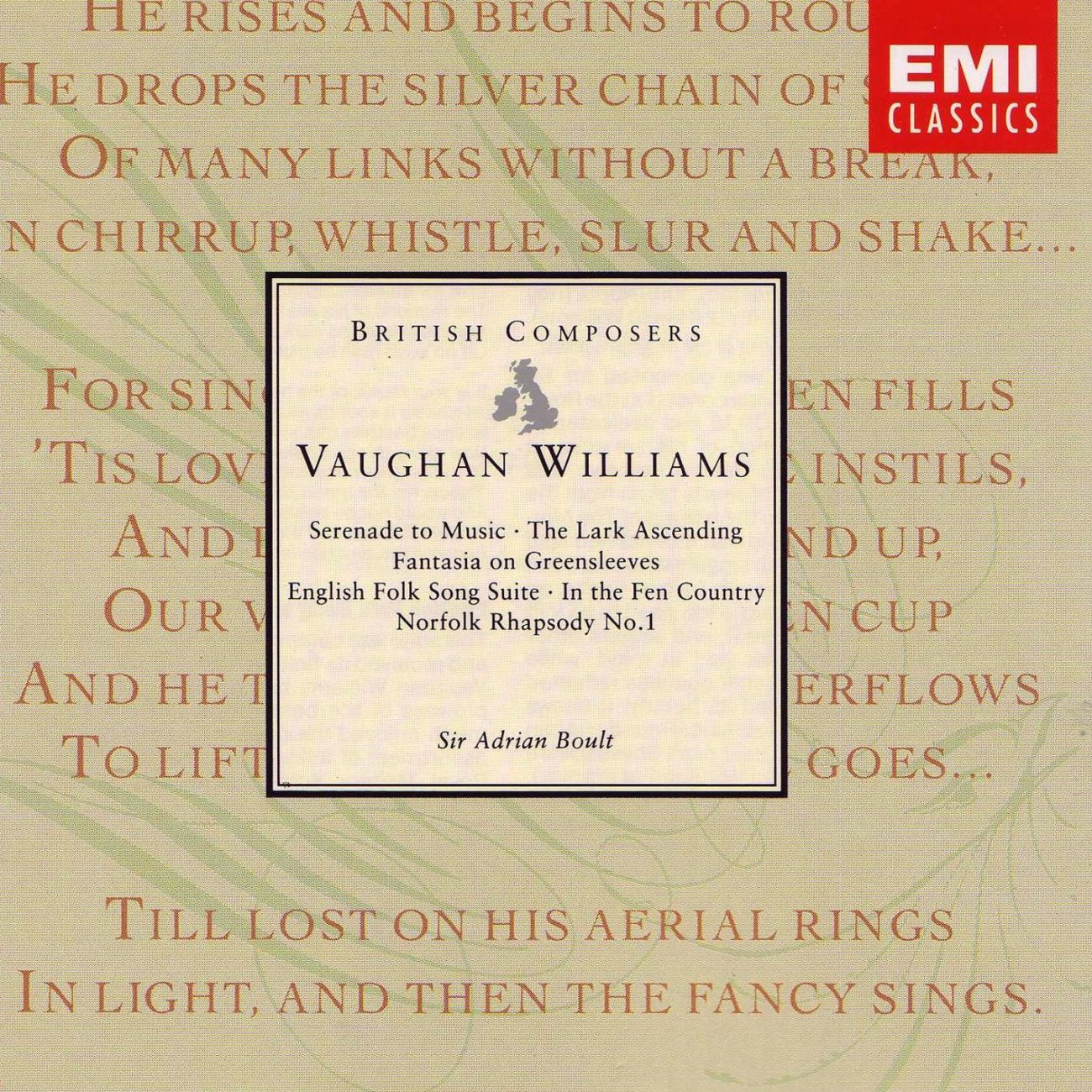
Vaughan Williams: Symphony No. 1, "A Sea Symphony"
Amanda Roocroft (Soprano)
Thomas Hampson (Baritone)
Sir Andrew Davis
BBC Symphony Orchestra
BBC Symphony Chorus
Recorded: 1995
Warner Classics: 9029540982
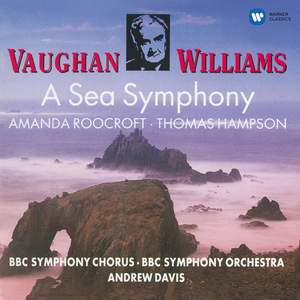
Vaughan Williams: Pastoral Symphony (No.3) · Norfolk Rhapsodies
Richard Hickox
London Symphony Orchestra
Recorded: 2001
Chandos: 10001
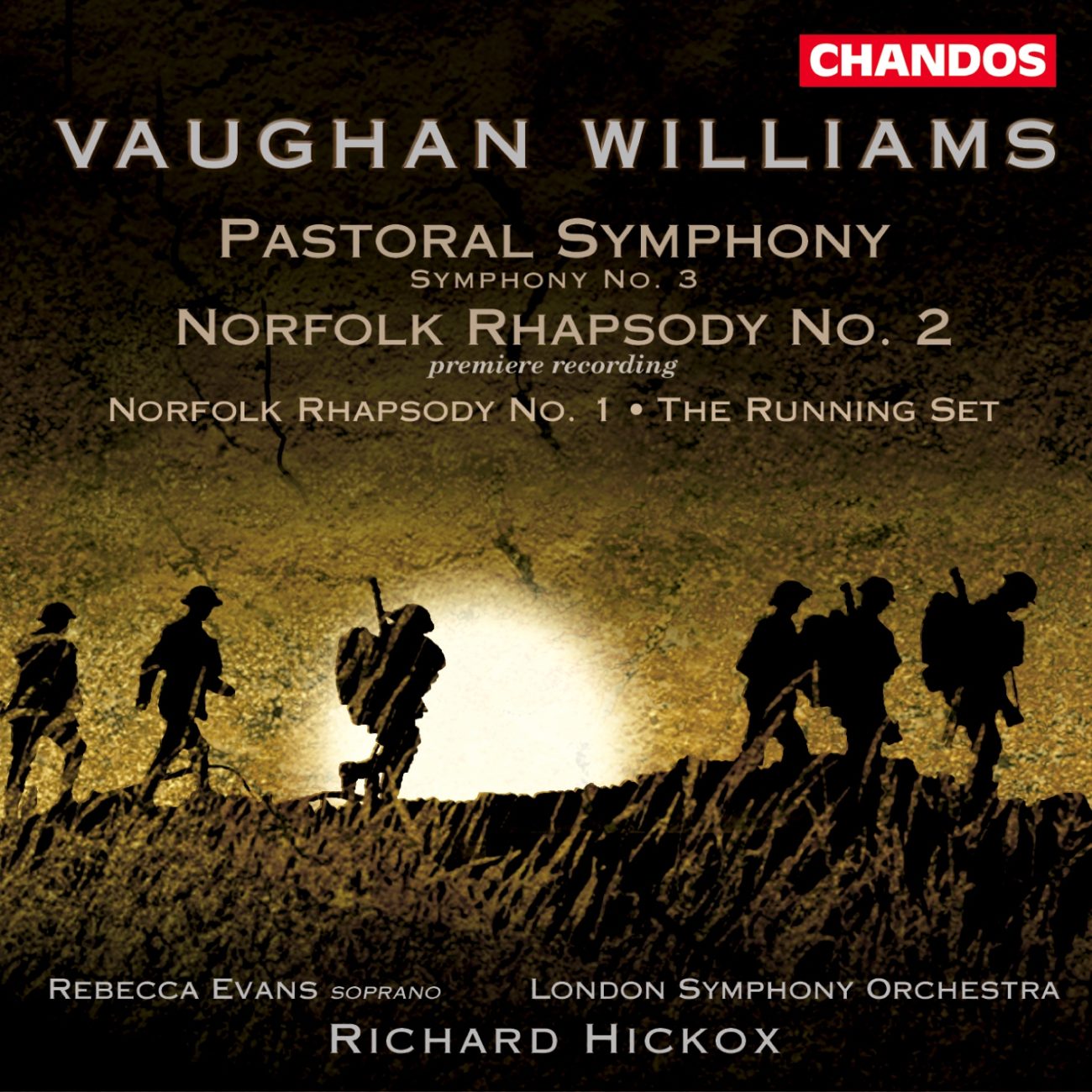
Vaughan Williams: The Garden of Proserpine & In the Fen Country - Hadley: Fen & Flood (Arr. R. Vaughan Williams)
Jane Irwin (Mezzo-soprano)
Paul Daniel
Bournemouth Symphony Orchestra
Joyful Company of Singers
Recorded: 2010
Albion: 012
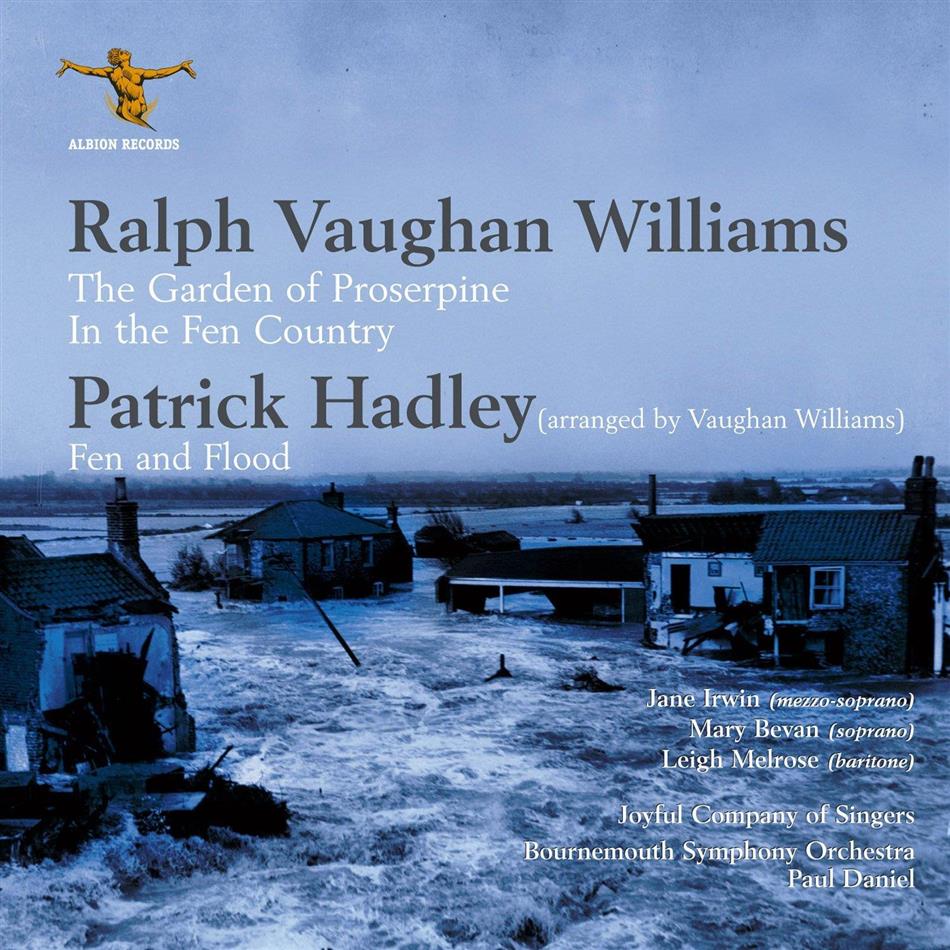
St. Matthew Passion
Leith Hill Musical Festival Chorus and Orchestra
Ralph Vaughan Williams, conductor
Recorded: 1958
Pearl Gems: 0079
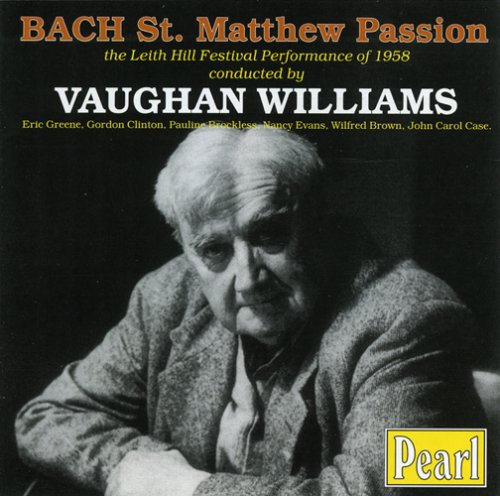
Albion Archive Recordings of Ralph Vaughan Williams
Includes "Bach – The Great Bourgeois: A talk by Ralph Vaughan Williams"
Albion: 014
